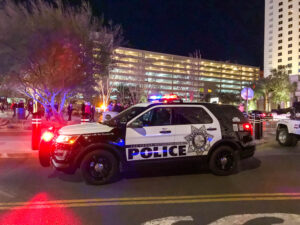Handling a “No Injury, No Response” Car Accident in Nevada

Free Confidential Consultation for Human Trafficking Victims
Free Confidential Consultation for Human Trafficking Victims


Car accidents are unfortunate realities on Nevada’s busy roads, including those in Las Vegas. An accident involving only property damage and no injuries might seem minor, but understanding your responsibilities is crucial. Nevada law requires certain actions to ensure compliance and protect your legal rights, even in seemingly insignificant incidents.
At THE702FIRM Injury Attorneys, our Nevada personal injury attorneys are here to help you with these situations. Knowing the steps you should take is important if you are in a “no injury, no response” car accident. From dealing with insurance companies to understanding Nevada car accident laws, having the right information can make a big difference.
Schedule a consultation with our experienced attorneys to discuss your personal injury lawsuit and ensure you handle everything correctly. Whether filing an accident report or dealing with insurance claims, we are here to guide you every step of the way.
The “No Injury, No Response” policy is a protocol typically adopted by law enforcement or emergency response agencies, where they do not respond to certain types of incidents or calls unless there is a confirmed injury or immediate danger to life. This policy is often implemented to prioritize resources and ensure emergency responders are available for more critical situations. The specifics of the policy can vary depending on the agency and jurisdiction, but it generally applies to:
Handling a no-injury, no-response car accident in Nevada requires a clear understanding of the steps involved. Ensure you document the accident scene, exchange insurance information, and report the incident to your insurance company. Understanding Nevada car accident laws, including the requirement to file a police report if property damage exceeds a certain amount, is crucial.
If you encounter any difficulties or have questions, consulting with an experienced car accident lawyer, like THE702FIRM Injury Attorneys, can help you with the legal process and protect your legal rights. Schedule a free consultation to discuss your case and secure fair compensation.

The days after an accident can feel overwhelming, particularly if you have injuries that develop over time. But there are steps that you can take to protect yourself and your rights. The following tips can help you respond effectively to a “no injury, no response” car accident:

Nevada is a fault-based state when it comes to car accidents. This means that the other driver – and, by extension, their insurance company – is responsible for paying for the damages caused by their negligence. However, the no injury, no response accident policy can make it easier for insurance companies to deny your claim because there may not be an objective report of the accident.
A non-injury accident lawyer can review the details involved in your accident and advise you of your rights. Your lawyer can ensure that you provide as much information as possible to support your claim and to avoid unnecessary delays and denials. Your lawyer will seek a settlement that fairly compensates you for the damages you sustained in the accident.
Car accidents can be stressful, even when no injury or damage seems minor. Many people think that if no one is hurt, there’s no need to report the accident. However, failing to respond correctly can lead to legal trouble. Here are some of the possible consequences a person may face
Leaving the scene of an accident without exchanging information or reporting it can result in hit-and-run charges. Even if there’s no injury, you are legally required to stop and provide your contact and insurance details. Failing to do so can lead to fines, license suspension, or jail time.
Not reporting a minor accident can cause problems with your insurance. Most policies require you to report any accident, no matter how small. If you don’t, your insurer might deny any future claims related to that incident. Additionally, not reporting an accident can affect your coverage and premiums.
In many states, you must report an accident to the police if there is property damage over a certain amount, usually around $500 to $1,000. Not doing so can result in fines and a possible misdemeanor on your record. Always check your state’s specific laws to understand your obligations.
Even if there are no injuries, the other party involved in the accident might still claim damages later. If you didn’t report the accident, defending yourself against these claims could be harder. Properly documenting and reporting the accident can protect you from unexpected lawsuits.
After an accident, an attorney can help you minimize delays and maximize the value of your claim. Some of the ways that a lawyer can help after an accident include:
| Monday | 8:00 AM - 5:00 PM |
| Tuesday | 8:00 AM - 5:00 PM |
| Wednesday | 8:00 AM - 5:00 PM |
| Thursday | 8:00 AM - 5:00 PM |
| Friday | 8:00 AM - 5:00 PM |
